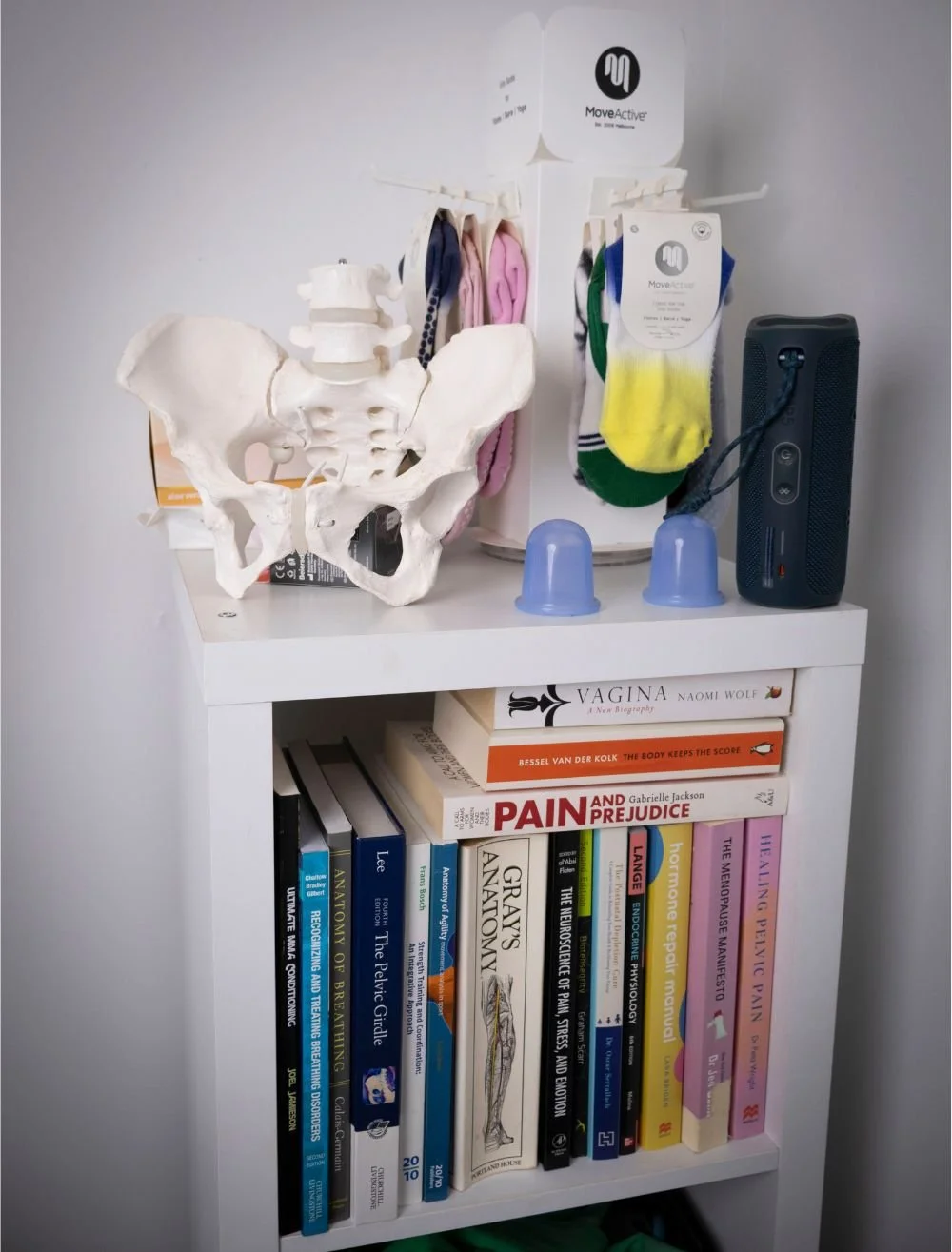Pregnancy & Postpartum Exercise Physiology Toowoomba
Let’s take care of you too.
“Taking care of yourself doesn’t mean me first. It means me too” L.R. Knost.
Reduce the added stress of pain, discomfort and pelvic floor issues during pregnancy and through the postpartum period.
Pregnancy & postpartum can be a challenging time physically and emotionally.
But change is possible, despite how bad things feel.
“She truly listened and got to the heart of my issue”
Are you ready to have confidence in your body in pregnancy & postpartum?
Exercise physiology in this life stage could have you:
💚 Understanding the changes in your body and ways to manage them
💚 Being active without wearing pads
💚 Managing and even improving any prolapse symptoms
💚 Healing your diastasis
💚 Performing daily activities without increasing symptoms
💚 Getting back to the gym knowing when to push and when to hold back
💚 Laughing, sneezing and coughing without crossing your legs
💚 Enjoying intimacy with your partner without concerns
💚 Trusting that your body is capable of healing
💚 Connecting with your pelvic floor and abdominals after vaginal or cesarean section
Stop the panic scrolling and taking advice from Mum-fluencers.
With pregnancy & postpartum exercise physiology, you’ll be on the right path to recovery.
Hey, I’m Rach, your exercise physiologist next door.
I’m a Mum of two young adult men.
And man, I wish I knew ‘back then’ everything I know now about managing the musculoskeletal changes that occur in pregnacy & birth and recovering in postpartum.
The good news though, is it’s never too late.
Whether you’re 8 months pregnant, 2 weeks postpartum, or like me, many years after the ‘events’.

Who it’s for.
For women who:
🩷 Are constantly Google (or ChatGPT) searching their symptoms
🩷 Are worried that their leaking, prolapse, pain or diastasis is part of their life.
🩷 Aren’t sure which advice to take or leave
🩷 Are relying on incontinence pads as backups
🩷 Are unable to enjoy intimacy with their partner
🩷 Are tired of worrying about making their symptoms worse
🩷 Say no to doing things because or their pelvic floor symptoms
🩷 Are feeling a loss of positive self-identity as a fit and active woman.
🩷 Are struggling to fit self-care into their day as a Mum
Who it’s not for.
Men— women only, obviously.
Services I provide for pregnancy & postpartum
Exercise Physiology
Clinical Pilates
Home Exercise Programs
The process:
Book and attend your initial assessment in my home clinic
1
Attend in clinic exercise, complete your home program consistently, or both.
2
3
Get back to living your life.
Kind Words
Are you ready to feel good in pregnancy & postpartum ?
The Blog
Frequently Asked Questions
-
My fees are set based on my expertise, qualifications, and experience.
I have completed extensive additional training in pelvic floor function and exercise therapy, on top of my post-grad exercise physiology qualifications.
To learn more about the session prices, duration and inclusions, please click the “APPOINTMENT INFO” button below.
-
As an exercise physiologist, I focus on movement, exercise and education to treat or help you manage your pelvic floor function in pregnancy or in your recovery postpartum.
This includes a whole body focus, rather than just looking at pelvic floor function.
After all, your pelvic floor can’t do all the work!
While it is outside my scope to diagnose or perform manual therapy, I still perform tests, assessments and use my hands to assess or guide you in your movements.
-
If you’re pregnant or postpartum and you:
leak when you sneeze, cough, lift, jump, run, walk etc.
Have prolapse or pelvic heaviness
Have diastasis recti and/or hernias
Have back, hip, pelvic or other pain or discomfort
Want to prepare physically for birth and postpartum recovery
Who want to exercise safely for this stage of life.
Have constipation, haemorrhoids or fissures
Have tailbone pain
Have recurrent UTI’s that aren’t (IFKYK)
Have pain with penetration
Want to improve their posture
Have no symptoms and want to ensure things stay that way.
-
An exercise physiology assessment for pelvic floor function involves:
A pelvic health screening questionnaire
A chat about your life experiences; from sports, to work, to your health history
A posture assessment
Assessment of pressure management strategies
Movement analysis to look for compensations or limitations
Assessment of your muscle activation patterns (including breathing and core)
Testing of your strength and imbalances
A discussion to create a plan that fits your circumstances and your life.
-
No, you do not.
But you may be able to access a referral from your GP under a management plan if your pelvic floor dysfunction is chronic or you have another chronic condition such as low back pain.
This would qualify you for up to 5 sessions per calendar year, where you can claim a medicare rebate.











